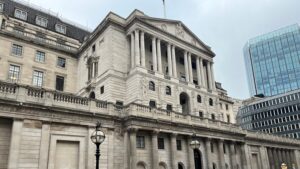For example, on 12 June, the Eurostoxx 50 was up 4% year-to-date (a month earlier it was up 10%) and today it is up just 1.4%; on the same day the FTSE 100 was up 10% (15% a month earlier) and is now up 7.4% year-to-date.
It is the same pattern for the Dax – up by 7% year-to-12 June (double digits a month earlier), and is now up 4.3%.
true
A lot of this volatility is a reaction to Ben Bernanke’s comments about QE that, depending on your interpretation, could increase, decrease or stay as it is now.
In May – and again in June – he said he will monitor the situation and could gradually wind down the program as the economic outlook improves. By the same token he could increase QE if the economic conditions demand it.
The one thing that is for certain is that QE will be withdrawn at some point because it simply cannot go on forever. Hopefully this will be done in an orderly manner with markets given plenty of forewarning and therefore able to react rationally, pricing it all in way ahead of time.
Unfortunately, markets are not behaving rationally at the moment (they rarely do…) and, for example, the positive stories about US economic numbers took a hit recently when US GDP growth in Q1 was revised downwards from a 2.4% estimate to an annualised rate of 1.8%. Markets promptly went up because this was translated as meaning QE will not be removed.
So what next?
As long as banks continue not to lend, then QE is the only way to get the necessary money, in volume, into equity and bond markets so if QE goes there is an argument that says the only reason for markets to go up will go as well.
On the other hand, if the markets get to that point where they believe what Bernanke says, that he and QE will be there if the US economy needs it – and won’t if it doesn’t – then we may be seeing the bottom of a correction.
In the UK (where the FTSE 100 is 12% off its peak, mid caps are 10.8% off and small caps 6.4% out) if this does happen then we could see a short-term, blue-chip revival followed by a return to small/mid-cap outperformance.
true







